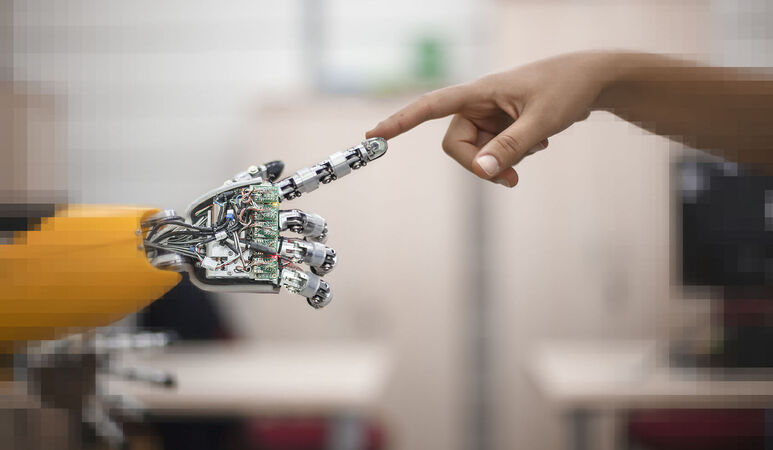New Work & Lifelong Learning in the Age of Digitalisation
The ongoing digital transformation is radically changing the world of work, especially for small and medium-sized enterprises (SMEs). Working environments, organisational structures and collaboration with customers and suppliers are constantly changing. Products, services and the associated production processes are also affected by these developments. There is hardly an area that escapes the rapid technological change that has a lasting impact on both the content of work and the production conditions.
The opportunities of New Work
New Work represents the profound change in the world of work that is being driven by digitalisation, demographic change and new social demands. The focus is on flexible working models that offer employees more autonomy. At the same time, flat hierarchies, agile working methods and project-based work are becoming more important. Companies must promote digital skills and establish a culture of lifelong learning in order to remain competitive. For companies and employees, New Work brings opportunities, but also challenges – particularly in adapting to technological innovations and the associated changes in qualification requirements.
Lifelong learning: the key to future viability
In a rapidly changing world, lifelong learning is essential to meet the challenges of the labour market. Technological advances, changing industries and new ways of working methods require us to continuously acquire knowledge and skills. Lifelong learning not only enables us to expand our professional qualifications, but also to promote personal development and adaptability. Whether through formal training, online courses or informal learning – the possibilities are diverse and crucial to securing our future in a dynamic working world.
Funded projects for professional development
In order to provide impetus for continuing vocational training, the Ministry for Economic Affairs initiated several funding calls for innovative continuing training projects in the fields of digitalisation, Industry 4.0 and artificial intelligence in the recent years. These are aimed at developing and implementing innovative further training concepts for Economy 4.0. The needs of small and medium-sized enterprises (SMEs) and specific groups of employees are taken into account. An overview of all currently running innovative further training projects can be found at www.fortbildung-bw.de/innovative-weiterbildungsprojekte/. In addition, the project ‘Digital Skills of the Future’ focused on enabling companies to recognise the need for further training and qualification for digital skills for all operational functions. The project results of the I 4.0 Network gGmbH for SMEs can already be used online with the 360° toolbox for digital skills.
